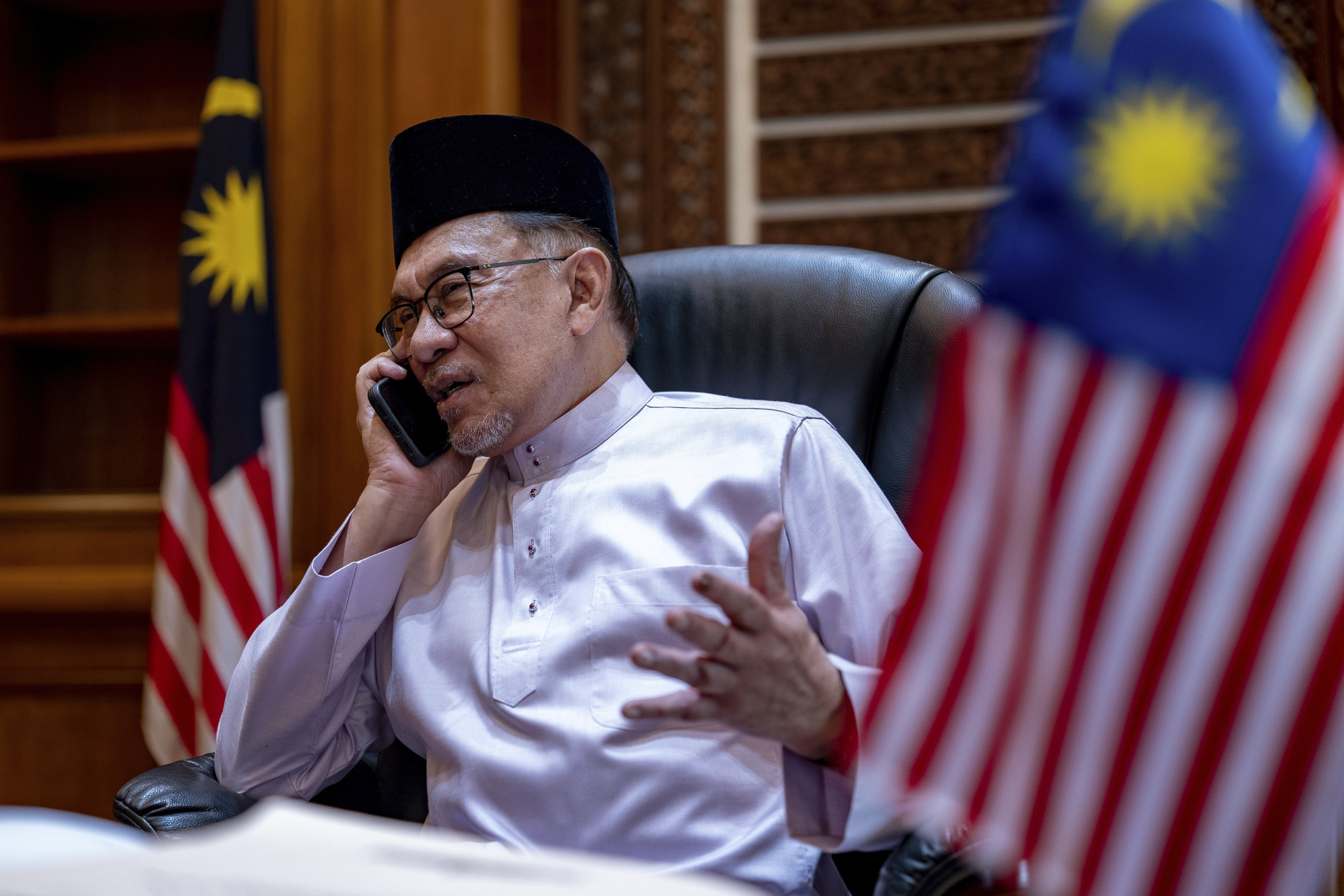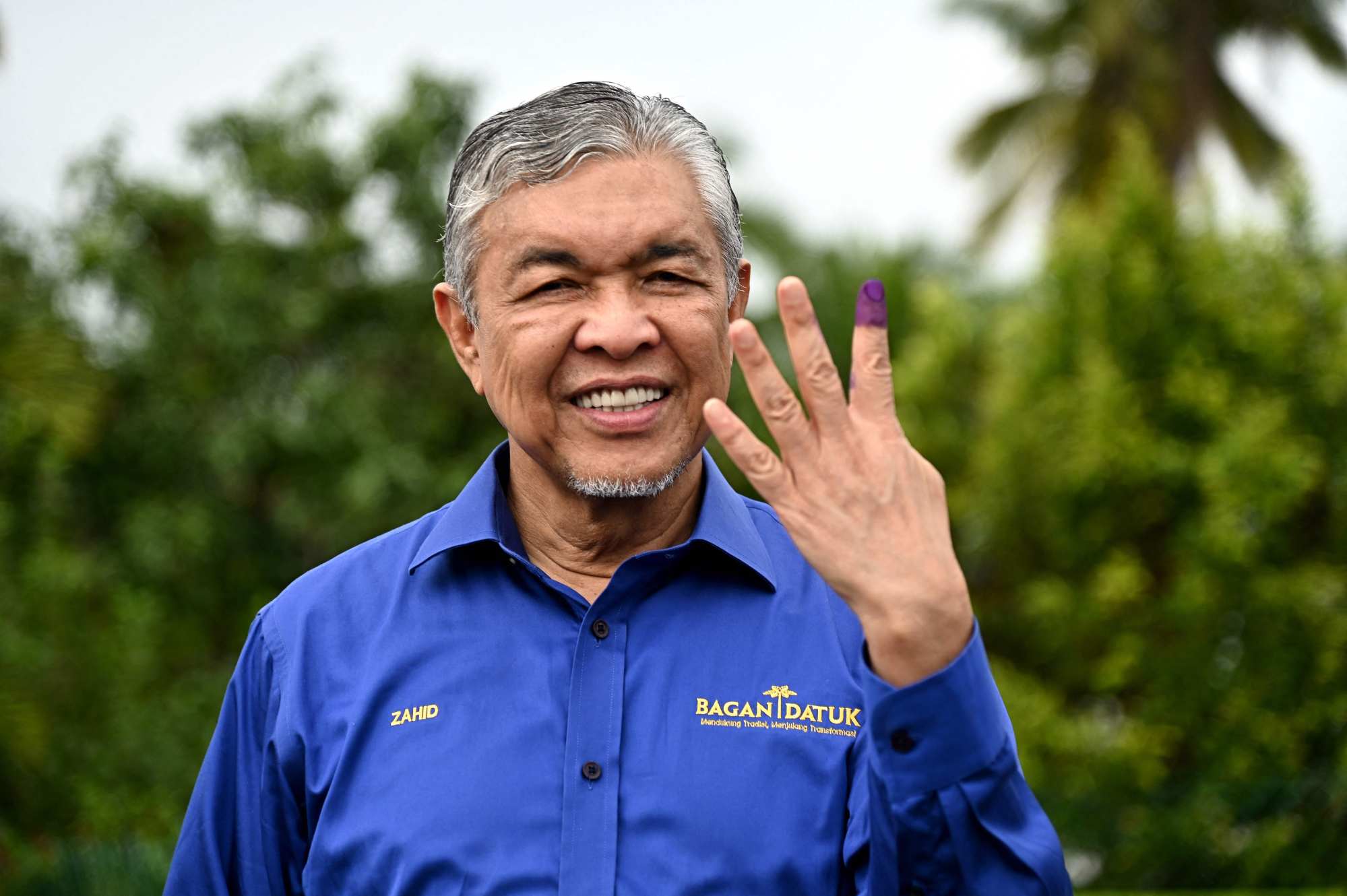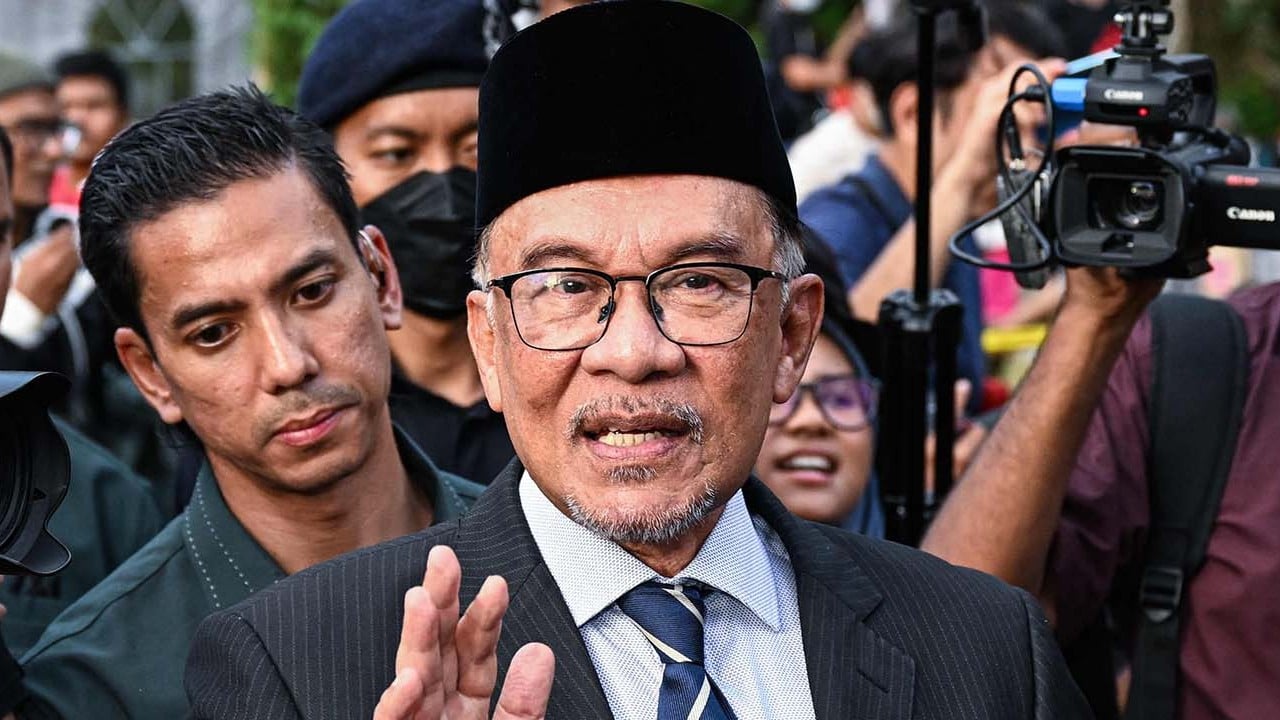
Here’s how Anwar Ibrahim can avoid a ‘toxic’ opposition and turn Malaysia around
- To have a successful term in office, Anwar must deliver direction and hope with meaningful roles offered to allies and the opposition, says Wong Chin-Huat
- The new PM’s fundamental challenge lies not in multiple crises hitting Malaysia, but the peculiarity of the country’s toxic ethno-religious politics
He is the country’s fourth prime minister since May 2018, and his predecessors’ terms have been decreasing: 22 months to 18 months to 15 months. So, can Anwar last a full five years until December 2027?
Anwar’s Achilles’ heel is his commitment to multi-ethnic politics, which cost him the trust of the conservative majority among the country’s Malay-Muslims, who make up some 60 per cent of voters.
While PH finally unseated the long-dominant Barisan Nasional (BN) in May 2018, it soon came under attack by Umno, the anchor of BN and its erstwhile rival Pan-Malaysian Islamic Party (PAS). This complicated the PH power struggle, between the Malay-nationalist Bersatu led by then Prime Minister Mahathir Mohamad and Anwar’s multi-ethnic PKR.
Consequently, the PH government collapsed after just 22 months when Bersatu left to join Umno and PAS to form a new government, only for them to splinter within 32 months with Umno on one side, and PAS and Bersatu on the other.
The new PH-led government looks strikingly similar to its first – but with some substitutions.
First, it has a mono-ethnic opposition bloc in PAS and Bersatu, which constitute the Perikatan Nasional (PN) coalition and together won 73 seats and 30 per cent of votes. Second, in place of Bersatu as a component party, it now has Umno, which controls BN’s 30 seats, as coalition partner.

How to avoid a toxic opposition?
Anwar’s government can fail quickly if PAS and Bersatu succeed in painting him as a traitor of Malay-Muslims and derail his government’s every effort to fix the economy with ethno-religious rows. He has already been called a puppet of Israel, and also of the Chinese-majority Democratic Action Party (DAP) within PH.
But several PN leaders have talked about forming a shadow cabinet and signing a confidence-and-supply agreement with PH. Anwar’s immediate predecessor Ismail Sabri Yaakob signed a similar agreement with PH, which delivered 13 months of stability until he succumbed to Umno President Zahid Hamidi’s pressure for an early election.
Anwar should incentivise PN to wait patiently for their rematch five years from now.
His government should grant key opposition leaders – or shadow ministers – commensurate salaries, policy research staff and access to government information. This will ensure that the PN shadow cabinet can and will compete with PH on the policy front, instead of constantly attacking it with communal grandstanding.
Anwar must not repeat the first PH government’s mistake of marginalising and discriminating the opposition. Wanting to build BN-like dominance, PH induced the exodus of East Malaysian parties from BN and 17 parliamentarians from Umno. However, this only brought the remnant Umno and PAS together to hit hard on PH’s multi-ethnic politics.
Malaysia’s PM Anwar scrambles to fix egg shortage amid cracks in production
How to avoid a walkout by Umno?
Anwar’s government could not have been formed if Umno did not add BN’s 30 seats to PH’s 82 seats, producing exactly a simple majority of 112 seats in the 222-member parliament. This allowed PH to attract the East Malaysian parties, which now gives the coalition government a two-thirds majority.
Anwar is expected to reward Umno generously in his administration line-up, giving them about 20 per cent of cabinet posts.
Instrumental in locking in the support for PH, Umno President Ahmad Zahid – a former deputy prime minister who is facing 47 charges of criminal breach of trust, corruption and money laundering – lobbied hard to get back his old job.
Indeed, on Friday evening, Anwar named him as his No 2 leader. This will tarnish PH’s anti-corruption image and allow PN to expand its support among middle ground Malay voters, especially if Ahmad Zahid later walks free.

Some PH supporters defend this move as a “necessary evil” to keep the religiously hard-line PAS out of government. However, as Ahmad Zahid is widely blamed within Umno for its humiliating defeat, he might lose in the coming party election due by May.
Next, state elections in six states – three each under PH and PN – must be held before September. If Umno is trounced again, this time for its alliance with PH, it would face tremendous pressure to pull out.
Anwar needs to help Umno reinvent itself as a Malay nationalist brand to compete with PN without weakening PH itself. This is both more important and difficult than returning a favour to Ahmad Zahid, his protégé three decades ago when they were both in Umno.
Anwar’s fortunate timing
With the exception of the first six months when Covid was under control, the last two governments largely failed to provide direction and instil confidence.
Malaysians now expect less of Anwar and want him to first fix the ailing economy. Most Malaysians are less keen on identity issues that overwhelmed and eventually throttled PH in its 2018-2020 stint in power.
So far, Anwar has been playing his cards right in connecting with his weary nation: refusing to use a Mercedes as his official car, pledging a small administration with a pay cut for ministers, declaring no government projects by direct negotiation and keeping top civil servants close to him.
Malaysia PM Anwar: subsidies must be targeted to low-income people
The market has shown confidence in Anwar too. The exchange rate for the ringgit has risen from a low of 4.75 ringgit to the US dollar two weeks before the election to 4.41 ringgit on December 1.
If Anwar continues to deliver direction and hope, and gives meaningful roles for both his opposition and allies, instead of attempting a new dominant government, he should be able to complete a full five-year term.
After 24 years waiting to take the reins of power, it is now finally showtime for Anwar.
Professor Wong Chin Huat is a political scientist and Deputy Head (Strategy) of the Asia Headquarters of UN Sustainable Development Solutions Network (SDSN) at Sunway University, Malaysia.


